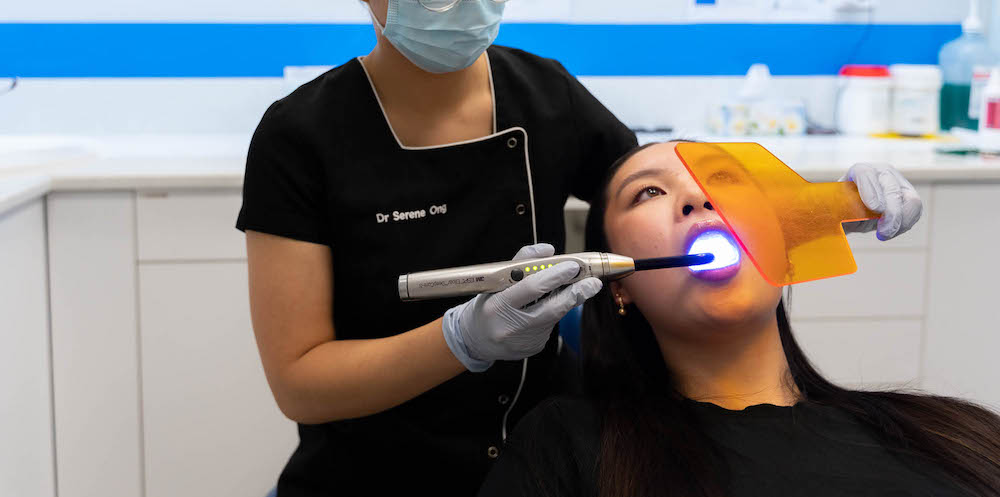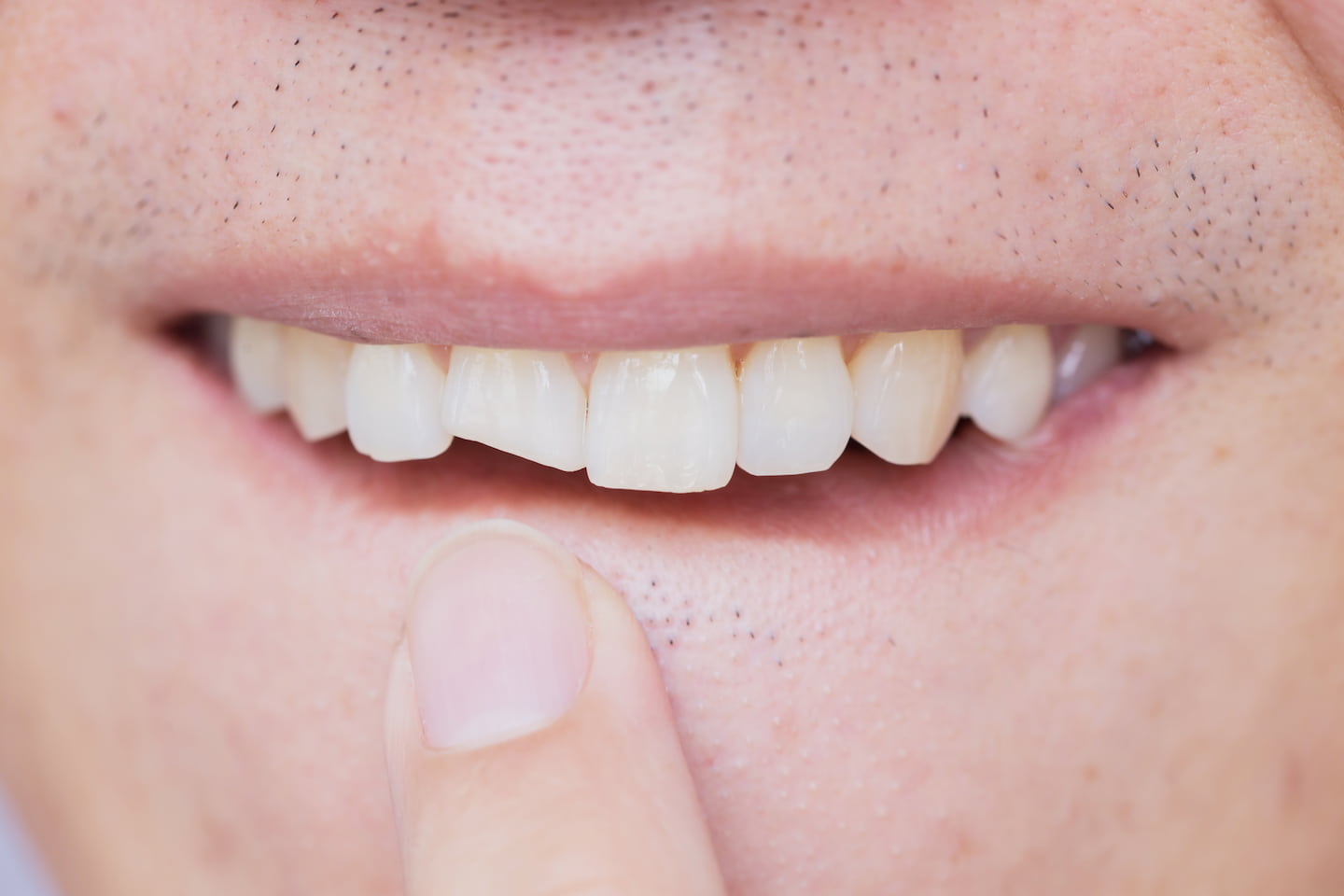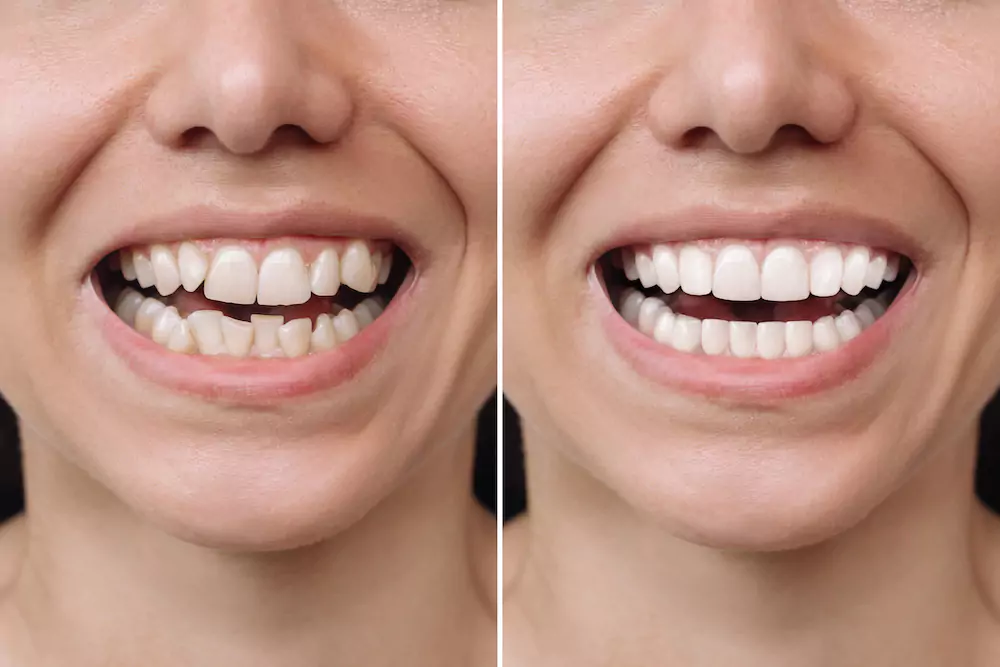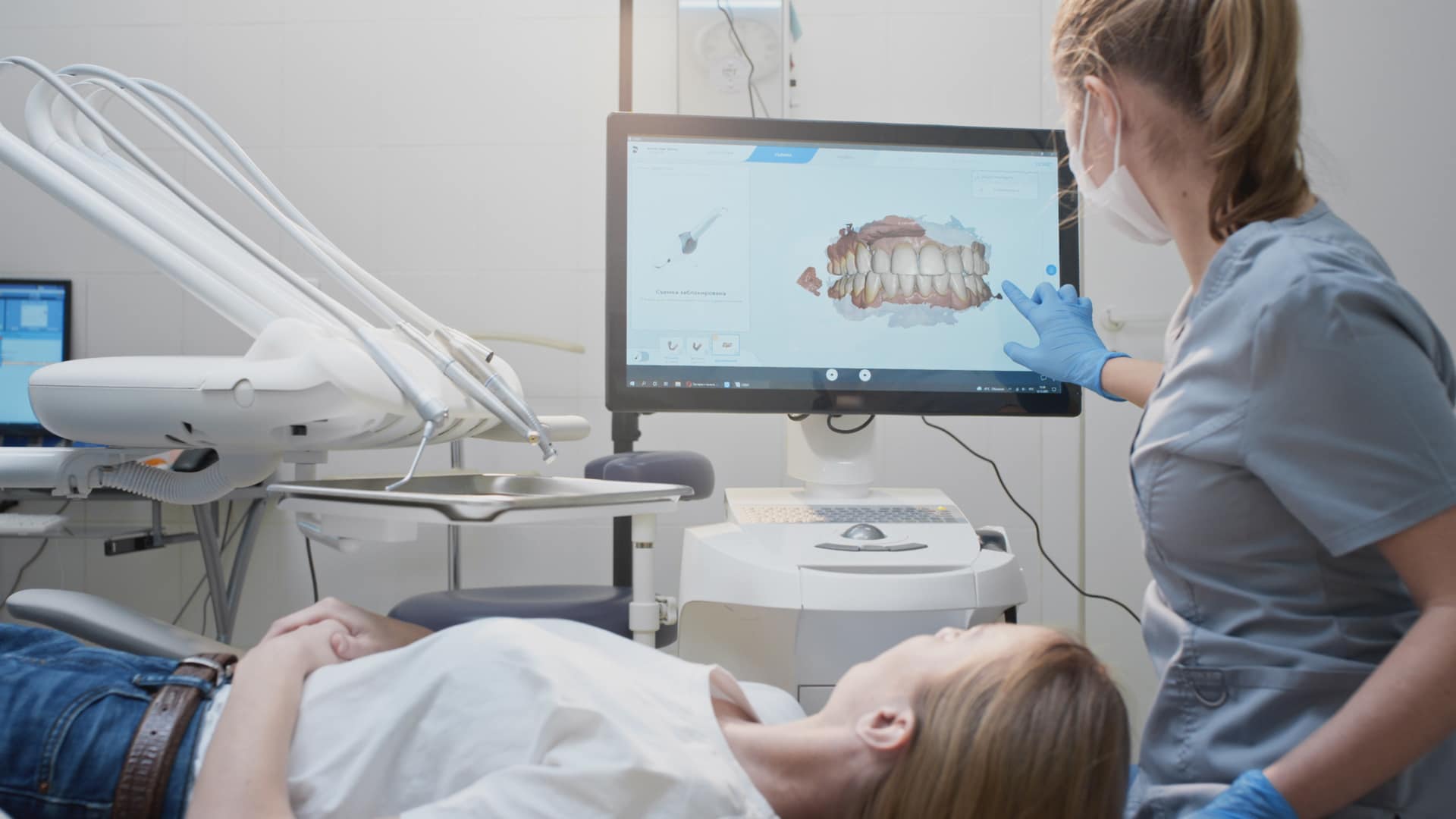
How Much Does Teeth Whitening Cost?
As a dentist with extensive experience in enhancing smiles, I’ve seen firsthand the transformative power of teeth whitening. Through years of practice, I’ve helped thousands of people achieve brighter smiles that boost their confidence and overall satisfaction with their appearance.
In this blog, I’ve dived into the various factors that influence the cost of teeth whitening, the differences between in-chair whitening and at-home kits, and what you can expect from the procedure to help you make an informed decision.
Quick Overview
- What is teeth whitening? Teeth whitening is a cosmetic dental procedure that lightens the colour of your teeth and removes stains using bleaching agents
- Factors influencing price: The cost depends on the whitening method, clinic location, dentist’s expertise, and if extra services are provided.
- Options for whitening: Choose between quick, in-chair treatments or more gradual, at-home kits.
- Duration of results: The whitening can last from four weeks to two years depending on the method used, the aftercare and lifestyle.
- Where to get it: Professional whitening services are widely available across dental clinics in Australia such as ours.
How Much Does Teeth Whitening Cost?
The cost of achieving a brighter smile through teeth whitening is subject to several influential factors. Understanding these can help you navigate your options more effectively:
Type of Whitening Procedure
- In-chair whitening: This professional service is performed in the dental clinic and tends to be on the higher end of the cost spectrum due to the use of advanced technology, immediate results, and the expertise required for the procedure.
- At-home whitening kits: These kits, provided by dental clinics for use at home, are typically less expensive than in-chair procedures. They include custom-fitted trays and a bleaching agent for gradual application, offering a more budget-friendly option with results over time.
In-Chair vs At-Home Whitening Kits
When deciding between in-chair whitening and at-home whitening kits, it’s important to weigh the pros and cons of each method to determine which best suits your needs and preferences.
Each method offers unique advantages tailored to different people’s needs.
In-Chair Whitening
Pros
- Immediate results: Achieve several shades lighter teeth in just one session.
- Professional supervision: Ensures the procedure is safe, minimising risks such as gum irritation.
- Advanced technology: Utilises cutting-edge bleaching techniques for enhanced effectiveness.
Cons
- Higher cost: Generally more expensive due to the technology and professional oversight involved.
- Requires clinic visit: Involves scheduling and attending an appointment.
- May not suit extremely sensitive teeth: Without prior treatment or assessment, some individuals with very sensitive teeth may experience discomfort.
At-Home Whitening Kits
Pros
- Convenient and flexible: Allows you to whiten your teeth on your own schedule and in the comfort of your home.
- More affordable: Typically less expensive than in-chair procedures.
- Gradual whitening: Enables controlled results and can be adjusted based on sensitivity and desired outcome.
- Suitable for those with sensitive teeth: The gradual process is often better tolerated by those with sensitivity concerns.
Cons
- Slower results: Takes longer to achieve noticeable whitening compared to professional treatments.
- Potential for inconsistent application: Risk of uneven results if the kit is not used correctly.
- Increased risk of misuse or overuse: Without professional guidance, there’s a higher chance of applying the product incorrectly or too frequently.
How Long Does Teeth Whitening Last?
The duration of your teeth whitening results can significantly vary, often lasting anywhere from four weeks to two years. This is influenced by several factors, including:
Factors Affecting Longevity
Dietary Choices
Foods and drinks with strong colour pigments, like coffee, tea, red wine, and some fruits (berries, for example), can cause staining over time.
Limiting or avoiding these items can help maintain your whitening results for longer.
Oral Hygiene
Effective oral hygiene practices are crucial for prolonging the effects of teeth whitening.
Regular brushing, flossing, and the use of antiseptic mouthwash can prevent plaque build-up and remove surface stains, keeping your teeth cleaner and whiter.
Tobacco Use
Smoking or using tobacco products is one of the fastest ways to counteract the effects of teeth whitening, leading to yellowing and staining.
Avoiding tobacco can extend the brightness of your smile.
If you would like to learn more about how long teeth whitening lasts, we have prepared a blog specifically on this topic.
Follow-Up and Maintenance Treatments
Periodic touch-up treatments, recommended by your dentist, can help sustain the brightness achieved from the initial whitening.
This might involve repeat in-chair sessions or the use of at-home whitening products.
How to Maintain Whiter Teeth for Longer
To ensure your teeth remain bright and white for as long as possible, consider adding the following into your routine:
Regular Dental Visits
Routine dental check-ups and cleanings not only help maintain overall oral health but also assist in keeping your teeth stain-free.
Professional cleanings can remove plaque and surface stains that daily brushing might miss.
Use of Straws
When consuming beverages known to cause staining, using a straw can help by minimising the liquid’s contact with your front teeth, thereby reducing the risk of stains.
Immediate Rinsing
After consuming foods or drinks that could stain your teeth, rinsing your mouth with water can help wash away potential staining agents.
This is particularly useful when you’re unable to brush your teeth immediately after eating or drinking.
Conclusion
Choosing the right teeth whitening method depends on what you’re looking for.
If you want quick and noticeable results with professional guidance, in-chair whitening is the way to go. If you prefer a more affordable and gradual approach, then an at-home whitening kit might be better for you. Each option has its benefits, so it’s all about what fits your needs and budget best.
Want to learn more or ready to brighten your smile? Visit our teeth whitening page for detailed information and to get started on your journey to a brighter, more confident smile!
FAQs
What are the different types of teeth whitening methods available?
There are several teeth whitening methods, including in-chair bleaching procedures performed by a dentist, at-home bleaching kits prescribed by a dentist and over-the-counter whitening strips and gels,. Each method varies in effectiveness, cost, and time required to see results.
Is teeth whitening safe?
When performed or supervised by a qualified dental professional, teeth whitening is generally considered safe. However, some individuals may experience temporary side effects such as tooth sensitivity or gum irritation.
Can everyone have their teeth whitened?
Most people can have their teeth whitened, but there are exceptions.
Teeth with porcelain crowns, veneers, or fillings will not bleach properly and may need to be replaced after whitening in order to match the shade of the whitened teeth This does not mean that you cannot whiten your teeth, you may just need to replace the fillings and porcelain dental work to match your whitening teeth. Additionally, individuals with gum disease, worn enamel, cavities, or hypersensitivity should consult a dentist for personalised advice before pursuing a teeth whitening procedure.
Are there any side effects to teeth whitening?
Some people may experience tooth sensitivity or gum irritation during or after the whitening process. These side effects are usually temporary and should subside on their own within approximately 1 week.
How can I maintain my whitened teeth?
Maintaining whitened teeth involves good oral hygiene practices, such as brushing twice a day, flossing daily, and regular dental check-ups. Avoiding staining foods and drinks, as well as tobacco products, can also help prolong the effects.
Does insurance cover teeth whitening?
Most dental insurance plans do not cover cosmetic procedures, including teeth whitening. It’s best to check with your insurance provider for specifics about your coverage.
How quickly can I see results from teeth whitening?
Results can vary based on the method used. In-chair professional whitening can offer visible results immediately after the treatment, while at-home kits or over-the-counter products may require several days to weeks for noticeable changes.
Can teeth whitening damage enamel?
Professional teeth whitening treatments are designed to be safe and will not damage the enamel if performed correctly. However, excessive use of over-the-counter whitening products without dental supervision could harm the tooth.


